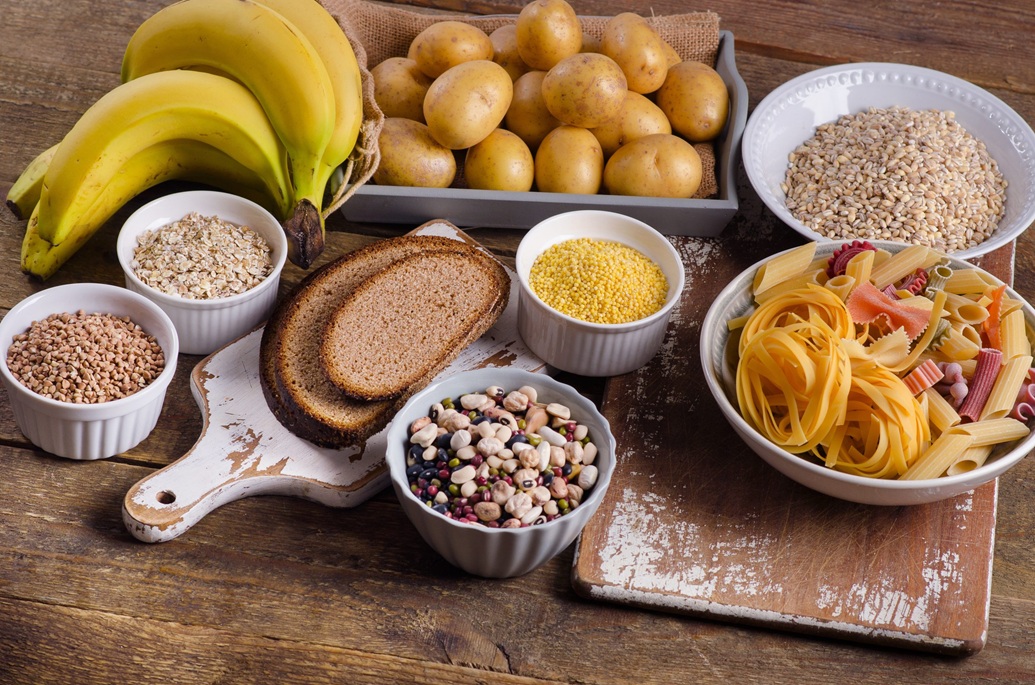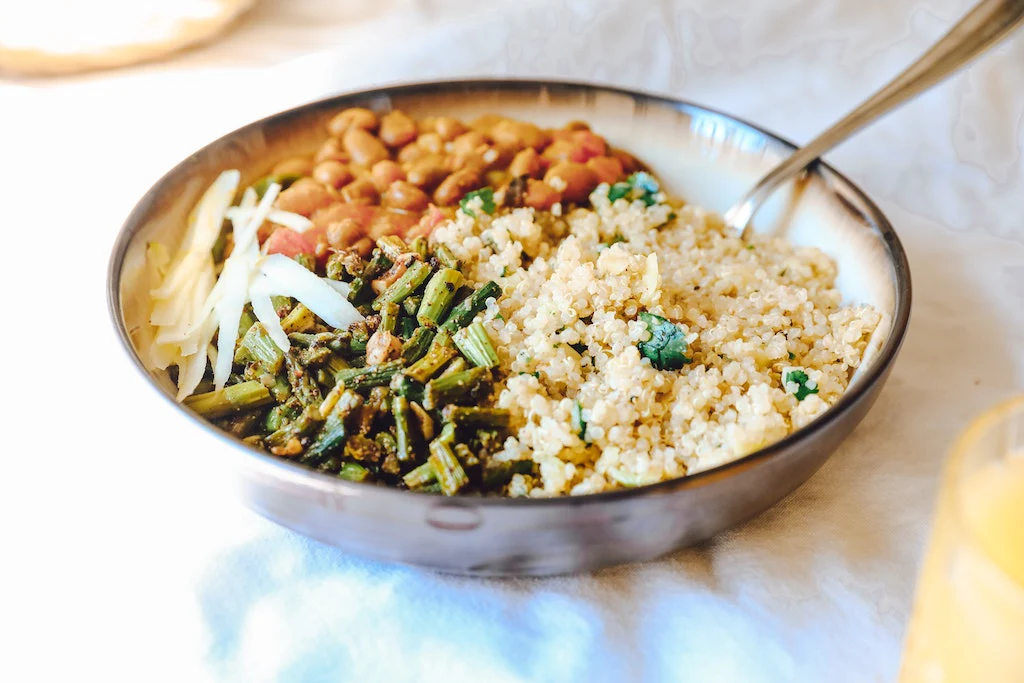Best Carbohydrates for Building Muscle
Carbohydrates play a crucial role in muscle building, providing the primary fuel source necessary for intense workouts, muscle recovery, and overall energy balance.
While protein often takes center stage in discussions about muscle growth, carbohydrates are equally important for optimizing performance and ensuring the body has sufficient glycogen stores.
We will explore the best carbohydrate sources for muscle growth, how many carbohydrates you should consume daily to build muscle, and whether 50% of your caloric intake from carbohydrates is ideal for bulking.
Why Carbohydrates Matter for Muscle Growth
Carbohydrates are the body’s preferred energy source. When consumed, they are broken down into glucose, which is either used immediately for energy or stored as glycogen in the muscles and liver.
During resistance training and high-intensity workouts, glycogen stores are rapidly depleted. Consuming an adequate amount of carbohydrates replenishes these stores, ensuring that muscles have enough energy to perform optimally and recover effectively.
Without sufficient carbohydrates, the body may resort to breaking down muscle tissue for energy, which is counterproductive to muscle-building goals.
Additionally, carbohydrates stimulate insulin release, a hormone that plays a significant role in muscle protein synthesis by promoting the uptake of amino acids into muscle cells.
This anabolic effect further enhances muscle growth and recovery, making carbohydrates an essential part of any bulking diet.

Best Carbohydrates for Muscle Growth
Not all carbohydrates are created equal. To maximize muscle growth and overall health, it’s essential to focus on high-quality, nutrient-dense carbohydrate sources. The best carbohydrates for muscle building can be categorized into complex and simple carbohydrates.
Complex Carbohydrates
Complex carbohydrates are slowly digested, providing a steady release of energy over time. These are ideal for sustained energy levels throughout the day and preventing blood sugar spikes.
Oats – Rich in fiber and essential micronutrients, oats provide a sustained energy release and help in muscle recovery.
Brown Rice – A staple in bodybuilding diets, brown rice offers a slow-digesting carbohydrate source that keeps glycogen stores replenished.
Sweet Potatoes – Packed with fiber, vitamins, and minerals, sweet potatoes provide a great source of long-lasting energy.
Quinoa – A complete protein source that also provides quality carbohydrates, quinoa is excellent for muscle growth and recovery.
Whole Wheat Bread and Pasta – These options offer fiber and complex carbohydrates while supporting sustained energy levels.
Legumes (Lentils, Chickpeas, and Beans) – Rich in protein and fiber, legumes provide steady energy while promoting muscle repair.
Vegetables (Broccoli, Spinach, and Kale) – While not as carb-dense as grains, these vegetables provide essential vitamins, minerals, and fiber to support muscle function.
Simple Carbohydrates
Simple carbohydrates are quickly digested and are ideal for post-workout glycogen replenishment.
White Rice – A fast-digesting carb source that quickly replenishes glycogen stores after workouts.
Fruits (Bananas, Apples, Berries, and Oranges) – Provide natural sugars, vitamins, and minerals that support recovery and performance.
Dextrose or Maltodextrin – These fast-digesting carbs are often found in post-workout supplements to rapidly restore glycogen.
Honey – A natural sugar source that provides quick energy and can be added to post-workout meals.
Milk – Contains lactose, a simple sugar, along with protein and essential nutrients beneficial for muscle recovery.
How Many Carbohydrates Should You Eat Per Day to Build Muscle?
The optimal carbohydrate intake for muscle growth depends on several factors, including body weight, training intensity, metabolic rate, and overall calorie requirements.
A general guideline is to consume between 3 to 5 grams of carbohydrates per pound of body weight per day when aiming to build muscle. For example:
- A 150-pound individual should consume 450-750 grams of carbohydrates per day.
- A 200-pound individual should consume 600-1000 grams of carbohydrates per day.
However, individual needs may vary, and it’s essential to monitor energy levels, workout performance, and recovery to adjust accordingly.
Is 50% Carbohydrates Ideal for Bulking?
A diet consisting of 50% carbohydrates is generally effective for bulking, as it provides sufficient glycogen replenishment while supporting muscle protein synthesis. A balanced macronutrient breakdown for bulking typically falls within the following range:
- Carbohydrates: 45-60% of total daily calories
- Protein: 25-35% of total daily calories
- Fats: 15-25% of total daily calories
For example, if you are consuming 3,500 calories per day to bulk, a 50% carbohydrate intake would mean consuming 1,750 calories from carbohydrates, which equates to about 438 grams of carbohydrates per day (since each gram of carbohydrates contains 4 calories).
However, this percentage is not a one-size-fits-all approach. Some individuals may perform better with slightly lower or higher carbohydrate intake, depending on their metabolism and workout regimen.

When to Eat Carbohydrates for Maximum Muscle Gain
Pre-Workout: Consuming complex carbohydrates 1-2 hours before training ensures sustained energy levels throughout the workout. Good options include oats, brown rice, and sweet potatoes.
Post-Workout: Simple carbohydrates should be consumed immediately after training to replenish glycogen stores and enhance recovery. White rice, fruit, or a dextrose-based supplement are ideal choices.
Throughout the Day: Including a mix of complex carbohydrates in meals ensures consistent energy levels and optimal muscle recovery. Whole grains, vegetables, and legumes should be consumed regularly.
Carbohydrates are a vital component of a muscle-building diet, fueling intense workouts, promoting muscle recovery, and optimizing overall performance.
The best carbohydrate sources for bulking include nutrient-dense complex carbs such as oats, brown rice, quinoa, and legumes, as well as fast-digesting simple carbs like white rice and fruit for post-workout recovery.
To effectively build muscle, carbohydrate intake should be 3-5 grams per pound of body weight per day, adjusting based on individual needs.
A 50% carbohydrate intake is generally effective for bulking, but personal preferences and metabolic differences should be considered.
By strategically timing carbohydrate intake around workouts and maintaining a balanced macronutrient ratio, you can maximize muscle growth and achieve optimal performance in the gym.



